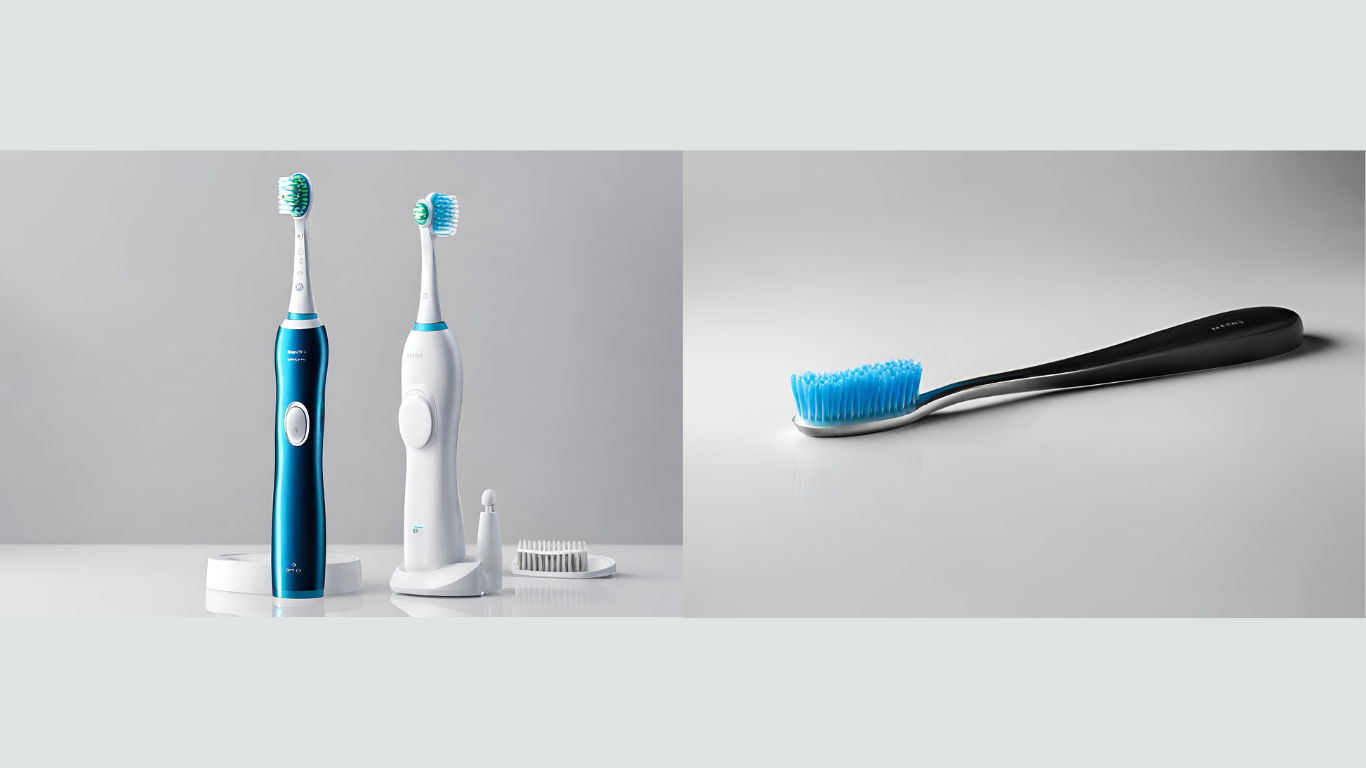ADVERTISEMENT
When it comes to maintaining oral hygiene, both electric and manual toothbrushes have their advantages and disadvantages. While manual toothbrushes are easily accessible and affordable, electric toothbrushes offer more advanced features and improved cleaning efficiency.
Manual Toothbrushes
Manual toothbrushes are the most common type of toothbrush, with over 75% market share globally[3]. They are easily available, portable, and require no batteries or power supply for their functioning[3]. However, manual toothbrushes can be difficult to use in hard-to-reach areas, especially in the third molar (wisdom tooth) regions or areas between crowded teeth[3]. They also require manual pressure, which can be difficult to control and may lead to excessive force, potentially damaging the teeth and gums[3].
Electric Toothbrushes
Electric toothbrushes, on the other hand, promise better brushing efficiency than manual toothbrushes[3]. They are more effective at removing plaque and keeping teeth healthy[2]. Electric toothbrushes are designed to do much of the work for you, making them a good option for people with limited mobility or those who need extra assistance[2]. They also have features like built-in timers, pressure sensors, and different speed settings, which can help ensure a more thorough and effective cleaning experience[1].
Comparison
Clinical studies have shown that electric toothbrushes with rotation-oscillation movement are more effective at removing plaque and keeping the mouth overall healthier than manual toothbrushes[1]. Electric toothbrushes from Oral-B, for example, remove up to 100% more plaque versus a regular manual toothbrush[1]. They also have features like two-minute timers and 30-second alerts, which can help users maintain the recommended brushing time and ensure that all areas of the mouth are cleaned[1].
Cost and Sustainability
While electric toothbrushes cost more than manual toothbrushes, they are an investment in oral health. Electric toothbrushes may generate less plastic waste than manual brushes, as only the head needs to be replaced every two or three months[4]. However, they may also create battery waste[4].
Personal Choice
Ultimately, the choice between an electric and manual toothbrush depends on personal preference and specific needs. Both types of toothbrushes can be effective in cleaning teeth, but electric toothbrushes offer more advanced features and improved cleaning efficiency[3]. It is essential to choose a toothbrush that fits your usage style and dentition, as this will make brushing more effective and enjoyable[5].
Citations:
| # | URL |
|---|---|
| [1] | https://www.oral-b.co.in/en-in/oral-health/why-oral-b/electric-toothbrushes/are-electric-toothbrushes-better-than-manual-toothbrushes |
| [2] | https://wekivadental.com/which-is-better-an-electric-toothbrush-or-a-manual-toothbrush/ |
| [3] | https://myacare.com/blog/electric-toothbrush-vs-manual-toothbrush-which-one-should-you-use |
| [4] | https://www.coraldentalcare.com/blog/electric-toothbrush-vs-manual/ |
| [5] | https://dentaldepot.net/best-toothbrush-for-you-manual-vs-electric-comparison/ |
ADVERTISEMENT
